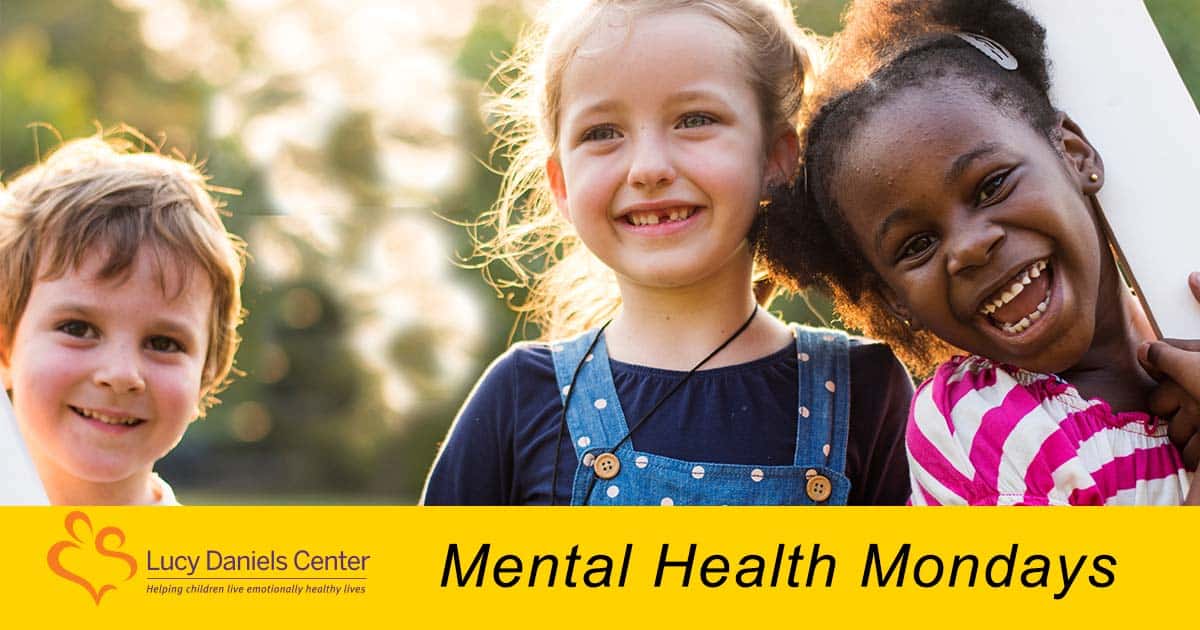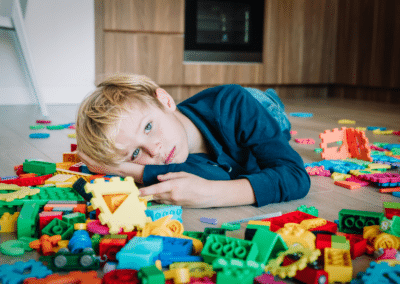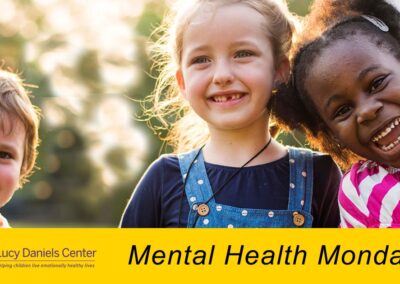Mental Health Mondays
Talking with Children about Adoption
We are often asked when and how to tell a child the story about their adoption. Since every adopted child’s situation is different, there is no one answer to this question. Let’s take a moment to consider some of the possibilities: some children are adopted at birth, others during their infancy or toddlerhood, and others even as late as in their teen years. Some children are adopted before they develop a relationship with their birthparent(s), some have some bonding time with their birthparent(s), and some experience multiple relationships with relatives or foster families before settling with their forever family. Some children are adopted by grandparents or other family members, some are adopted by families in their community, and some children come from faraway places and foreign lands. Some adoptions close the door completely on previous relationships while others include some form of ongoing contact with the birthparent(s). There are other issues, but this sample is enough to convey the scope of possibilities in any given situation.
The specifics of any child’s circumstances also lead to other, deeper questions: were there prior relationships that had or have meaning to the child? Have those relationships remained a part of the child’s life? Does the child have conscious memories of the time before their adoption? Are there siblings in the family, either older or younger, who were not adopted? Are there multiple adoptions in the family?
Therefore, there is no “out of the book” way to respond to adoption – there are only sensible and sensitive ways to respond to the particular and individual situation. We can, however, offer the following guidelines based on our understanding of the emotional development of all children.
Be honest.
It may feel easier – and less painful – to romanticize the story of a child’s past and adoption, but being open and honest is essential when helping a child understand who she is and where she came from. But sometimes honesty must be timed so a child can bear painful realities. How does a parent explain to a child that her early life experiences were in a neglectful or abusive setting? Or that the birthparents may have loved the child (because most often this is not really known) but couldn’t – or decided not to – keep him? These are questions to be considered as you think about how the dialogue about adoption will unfold, and there is no one way or one path to explaining this. This information needs to be given in small doses, over time, with increasing honesty as the child moves through the grade school years and adolescence. As you do so, take some time to anticipate how your words may be interpreted and understood by your child.
Have a sense of what your child can handle, developmentally and emotionally.
Ideally, the conversation about adoption is one that takes place gradually and over the course of an adopted child’s childhood and young adulthood. Over time, as a child grows and matures, he will have different thoughts, feelings, and questions about his adoption. Parents of adopted children will do them a great service by keeping themselves always open and ready to listen and talk. Other considerations: does your child seem to have emotional difficulties that may be related to the adoption? Does he or she avoidant or reactive when you talk about it? In some cases, guidance from mental health professionals can be helpful to children and parents as they learn how to communicate their feelings about the adoption with each other.
Help your child develop a narrative.
Parents who actively work to create an honest and meaningful life story will foster resiliency in their child. For adopted children, this involves weaving together their individual story (e.g., learning about their birth country) with the family narrative of their adoptive family.
Keep the discussion open and ongoing.
Many families introduce talks about the adoption from the very beginning. This allows for the development of a story that can be refined and added to over time in a natural way. Parents of adopted children can set the stage for open, honest, and ongoing communication by conveying their willingness to talk as well as their comfort with all aspects of the discussion. Be careful not to assume that your child isn’t thinking about his or her past or the particulars of the adoption simply because he is not talking about it with you. Keep the door to talking, thinking, and feeling together open and you will ultimately provide your child with a safe, comforting environment to learn and grow.
Lucy Daniels School is an emotionally safe and supportive learning environment for children preschool-5th grade. Lucy Daniels School provides an alternative choice in our therapeutic school for children who struggle emotionally and academically in a mainstream school environment. At the Lucy Daniels School, each child’s education and therapeutic program is carefully tailored to his or her needs and strengths. Parents meet regularly with a parent guidance counselor. This collaborative approach helps children progress socially and academically to become successful and competent learners.



